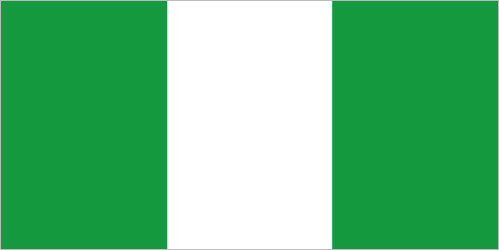Eighteen candidates are campaigning to become the next president of Nigeria in the upcoming general elections on Saturday.
The Independent National Electoral Commission (INEC) reports that 93 million Nigerians are registered to vote. However, like other nations, Nigeria has had a voter turnout decline in its national elections, with only an estimated voter turnout of 30 million in 2019, compared to approximately 37 million voters in 2015.
According to a recent Gallup poll, Nigerians’ confidence in elections has dropped from roughly 57 percent in 2017 to about 18 percent in 2023.
Several local Nigerian Diaspora leaders from the D.C. area gathered recently to share their views about Nigeria’s upcoming general election and what they believe are the top issues for voters in Nigeria and abroad.
Most agreed that leadership and the proven ability to lead the country forward are priorities. In addition, The Central Bank of Nigeria’s plan to redesign the national currency and the power of Nigerians living abroad to vote in national elections are also common concerns.
Chioma Iwuoha
Chioma Iwuoha, an elected official who serves as an At-Large Committeewoman for the D.C. Democratic State Committee wants Nigerian government leaders who will “place their constituents before themselves and be especially relatable to young people to get them excited to come out and vote,” she said.
Moving to Cashless Society
Several Diaspora leaders expressed cautious optimism about the Central Bank of Nigeria’s policy to redesign the Naira and move to a cashless economy. They want bank officials to proceed but take more time to show the citizens how to conduct financial transactions in a cashless economy.
Dr. Oye Owolewa
Dr. Oye Owolewa, a Nigerian American elected official who serves as D.C.’s Congressional Representative, said he has concerns about the timing and implementation of a cashless society. “The timing is an issue. Right now, the Nigerian Naira is devalued, and this news further impacts that. I have further questions about how we will control and regulate a cashless currency.” He suggests a slower roll-out period to correct the plan’s potential operational issues.
Philip Njowusi
Philip Njowusi, Managing Partner and CEO of Pan Services, an international architectural firm in the DMV, believes that a cashless system is a good idea if it will help to curb corruption. He also said he is confident that bank officials have the capacity and experience to manage Nigeria’s transition into a cashless economy.
“I believe moving to a cashless society is a good thing, but they need to do more work with the implementation and execution for it to work,” he said.
Dr. Toyin Opensanmi
Dr. Toyin Opensanmi, a chair with the Nigerian American Public Affairs Committee, thinks the government needs to educate people to use their phones to transfer money and improve the country’s internet infrastructure for the proposed cashless system to work.
“There are people who don’t know how to use their phones to transfer money,” she said, “and they need to be educated, including those who have flip phones.”
“Further,” Opensanmi added, “currencies are changed all of the time; it will just be interesting to see how this one is going to work.”
Voting Rights for Nigerian Diasporans
Nigerian Diaspora voting rights are a critical concern for those residing outside of their homeland. The Nigerians in Diaspora Commission reports that 206 million Nigerians live outside their country.
President Buhari of Nigeria recently stated that the Diaspora contributed over $20 billion to their homeland in 2021. However, Nigeria’s constitution does not permit its Diaspora population residing outside the country to vote in its elections.
Dr. Malcolm Fabiyi
“Take away what the Nigerian Diaspora contributes, Nigeria would be in serious trouble,” said Dr. Malcolm Fabiyi, president of Governance Advancement Initiative for Nigeria Inc., based in Maryland.
In contrast to the District’s “taxation without representation,” Fabiyi explained, “We are willingly giving back to our nation, and the reason why is because we care about our country.”
Fabiya said he believes “Nigerians [living outside of the country]should be allowed to vote,” adding, “100 nations on earth allow diaspora citizens the right to vote, and I don’t think Nigerians should be an exception.”
“The concerns, however, are real,” he added. “There are 200 million Diasporans, and there are about 20 to 30 million Nigerians in Nigeria who vote. So, it doesn’t surprise me that the political system may have concerns that over half of the votes could come from outside of the nation from people you cannot influence with the typical methods politicians influence people in Nigeria. But still, Nigerians should have the right to vote. They deserve the right to vote, and we’ve earned that right to vote,” he said.
National Concerns for Nigerians
The concern over the declining confidence that Nigerian civil society has expressed in their government institutions will complicate the incoming president’s economic, political and security agenda and efforts to reverse growing voter apathy.
Nigerian presidential candidates will be evaluated based on their response to these national concerns and the insecurity brought on by Boko Haram, the Islamic militant group that has reportedly waged attacks and threatened the lives and security of many Nigerians.



